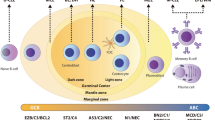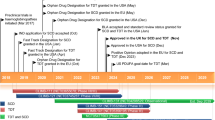Abstract
Purpose of Review
The purpose of this review article is to summarize the preclinical and clinical evidence supporting the notion of clonal hematopoiesis of indeterminate potential (CHIP), highlight current knowledge gap, and provide future directions.
Recent Findings
Epidemiological studies show that advanced age is a major risk factor for the development of cardiovascular disease (CVD) and cancer, the two leading causes of morbidity and mortality worldwide. While the negative effect of aging on CVD is a reflection of cumulative exposure to various established traditional CVD risk factors, genetic sequencing of whole blood–derived DNA recently revealed that clonal mutations in myeloid stem cells are associated with higher risks of cardiovascular events and hematopoietic malignancies. The clinical repercussions of this biological state, termed CHIP, are increasingly appreciated. Historically, CHIP has been associated with an increased risk of hematological malignancies. However, new research is showing that CHIP is also associated with an increased risk of several cardiac-related conditions, including atherosclerosis, myocardial infarction, aortic valve stenosis, and congestive heart failure.
Summary
CHIP is increasingly being appreciated worldwide as a CVD risk factor, and further studies are needed to better understand the complex relationship between these two disorders.


Similar content being viewed by others
References
Papers of particular interest, published recently, have been highlighted as: • Of importance •• Of major importance
Martincorena I, Fowler JC, Wabik A, Lawson ARJ, Abascal F, Hall MWJ, et al. Somatic mutant clones colonize the human esophagus with age. Science. 2018;362(6417):911–7.
Martincorena I, Roshan A, Gerstung M, Ellis P, van Loo P, McLaren S, et al. Tumor evolution. High burden and pervasive positive selection of somatic mutations in normal human skin. Science. 2015;348(6237):880–6.
Jaiswal S, Fontanillas P, Flannick J, Manning A, Grauman PV, Mar BG, et al. Age-related clonal hematopoiesis associated with adverse outcomes. N Engl J Med. 2014;371(26):2488–98.
Busque L, Buscarlet M, Mollica L, Levine RL. Concise review: age-related clonal hematopoiesis: stem cells tempting the devil. Stem Cells. 2018;36(9):1287–94.
Wong TN, Miller CA, Jotte MRM, Bagegni N, Baty JD, Schmidt AP, et al. Cellular stressors contribute to the expansion of hematopoietic clones of varying leukemic potential. Nat Commun. 2018;9(1):455.
Steensma DP, Bejar R, Jaiswal S, Lindsley RC, Sekeres MA, Hasserjian RP, et al. Clonal hematopoiesis of indeterminate potential and its distinction from myelodysplastic syndromes. Blood. 2015;126(1):9–16.
. Jaiswal S, Natarajan P, Silver AJ, et al. Clonal hematopoiesis and risk of atherosclerotic cardiovascular disease. N Engl J Med. 2017;377(2):111–21 This is the first clinical study to show that CHIP significantly increases the risk of coronary heart disease and early-onset myocardial infarction.
Fuster JJ, MacLauchlan S, Zuriaga MA, Polackal MN, Ostriker AC, Chakraborty R, et al. Clonal hematopoiesis associated with TET2 deficiency accelerates atherosclerosis development in mice. Science. 2017;355(6327):842–7.
Wang W, Liu W, Fidler T, Wang Y, Tang Y, Woods B, et al. Macrophage inflammation, erythrophagocytosis, and accelerated atherosclerosis in Jak2 V617F mice. Circ Res. 2018;123(11):e35–47.
Sano S, Oshima K, Wang Y, MacLauchlan S, Katanasaka Y, Sano M, et al. Tet2-mediated clonal hematopoiesis accelerates heart failure through a mechanism involving the IL-1β/NLRP3 inflammasome. J Am Coll Cardiol. 2018;71(8):875–86.
Edelmann B, Gupta N, Schnoeder TM, Oelschlegel AM, Shahzad K, Goldschmidt J, et al. JAK2-V617F promotes venous thrombosis through β1/β2 integrin activation. J Clin Invest. 2018;128(10):4359–71.
. Mas-Peiro S, Hoffmann J, Fichtlscherer S, et al. Clonal haematopoiesis in patients with degenerative aortic valve stenosis undergoing transcatheter aortic valve implantation. Eur Heart J. 2020;41(8):933–9 This is the first clinical study to show that CHIP, specificallyDNMT3AandTET2mutation–mediated clonal hematopoiesis, increases mortality following successful transcatheter aortic valve implantation for aortic valve stenosis.
. Dorsheimer L, Assmus B, Rasper T, et al. Association of Mutations Contributing to Clonal Hematopoiesis With Prognosis in Chronic Ischemic Heart Failure. JAMA Cardiol. 2019;4(1):25–33 This is the first clinical study to show that CHIP, specificallyDNMT3AandTet2mutation–mediated clonal hematopoiesis, is associated with a significant and profound increase in death and rehospitalization for heart failure of ischemic origin.
Bick AG, Pirruccello JP, Griffin GK, Gupta N, Gabriel S, Saleheen D, et al. Genetic interleukin 6 signaling deficiency attenuates cardiovascular risk in clonal hematopoiesis. Circulation. 2020;141(2):124–31.
Lindman BR, Clavel MA, Mathieu P, Iung B, Lancellotti P, Otto CM, et al. Calcific aortic stenosis. Nat Rev Dis Primers. 2016;2:16006.
Bolton KL, Zehir A, Ptashkin RN, Patel M, Gupta D, Sidlow R, et al. The clinical management of clonal hematopoiesis: creation of a clonal hematopoiesis clinic. Hematol Oncol Clin North Am. 2020;34(2):357–67.
Libby P, Ebert BL. CHIP (clonal hematopoiesis of indeterminate potential): a potent and newly recognized contributor to cardiovascular risk. Circulation. 2018;138(7):666–8.
Author information
Authors and Affiliations
Corresponding author
Ethics declarations
Conflict of Interest
Preetham Kumar declares that he has no conflict of interest.
Stephen L. Kopecky has received research support from True Health and compensation from Prime Therapeutics (consulting), Amgen (workshop), and Applied Clinical Intelligence (Data Safety Monitoring Board) and is a member of the Board of Directors of Mayo Clinic Support Services, TX.
Eric H. Yang declares that he has no conflict of interest.
Ohad Oren declares that he has no conflict of interest.
Dr. Kumar reports no disclosures.
Dr. Kopecky reports the following disclosures: Consulting – Prime Therapeutics; Research Support – True Health; DSMB Member – Applied Clinical Intelligence; Board of Directors, Member – Mayo Clinic Support Services, TX.
Dr. Yang reports no disclosures.
Dr. Oren reports no disclosures.
Human and Animal Rights and Informed Consent
This article does not contain any studies with human or animal subjects performed by any of the authors.
Additional information
Publisher’s Note
Springer Nature remains neutral with regard to jurisdictional claims in published maps and institutional affiliations.
This article is part of the Topical Collection on Cardio-oncology
Rights and permissions
About this article
Cite this article
Kumar, P., Kopecky, S.L., Yang, E.H. et al. Clonal Hematopoiesis of Indeterminate Potential and Cardiovascular Disease. Curr Oncol Rep 22, 87 (2020). https://doi.org/10.1007/s11912-020-00955-2
Published:
DOI: https://doi.org/10.1007/s11912-020-00955-2




